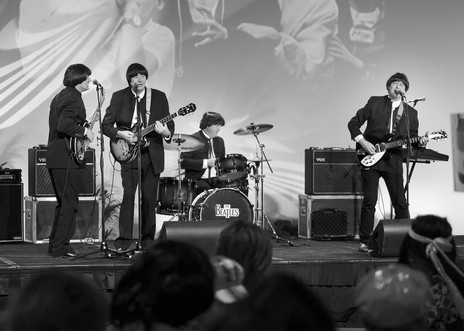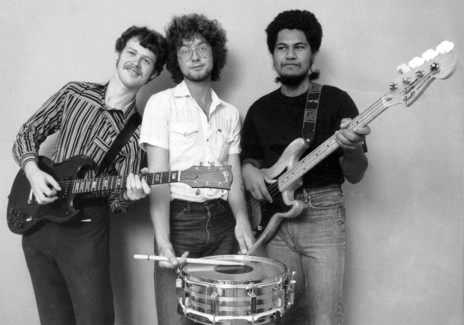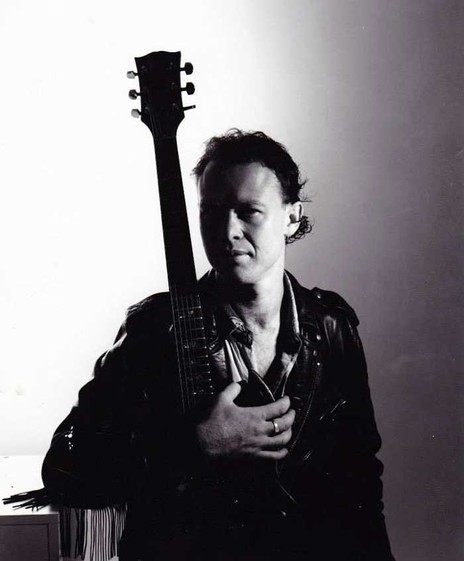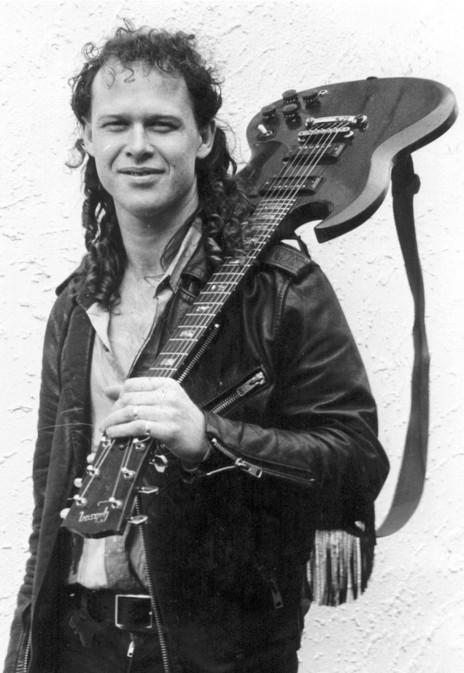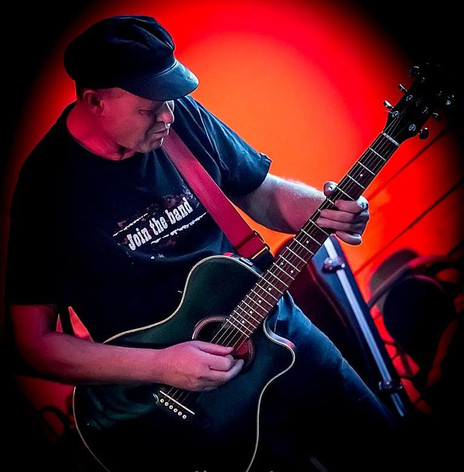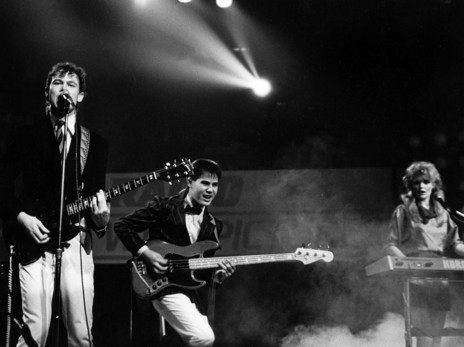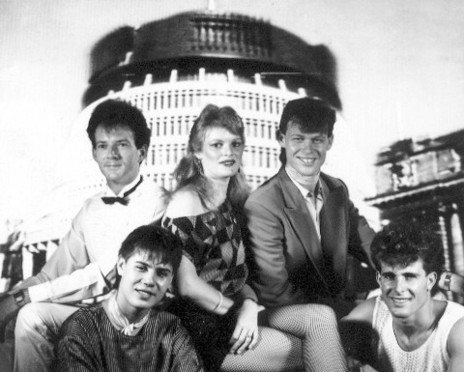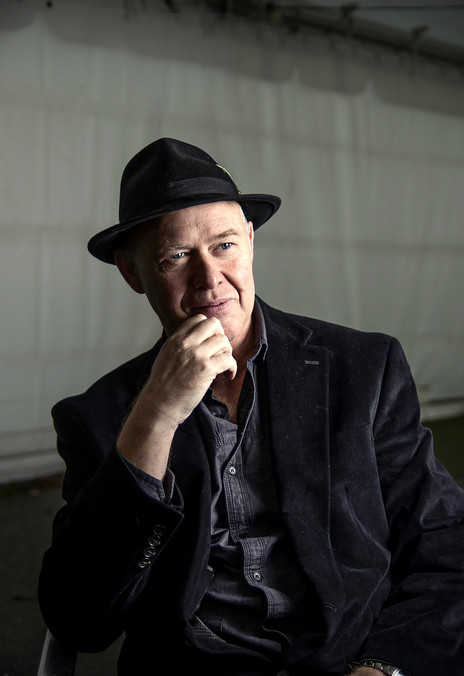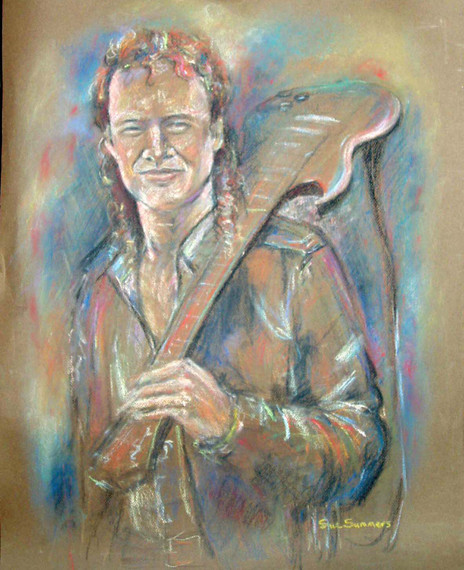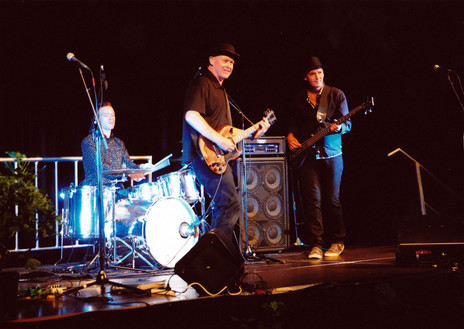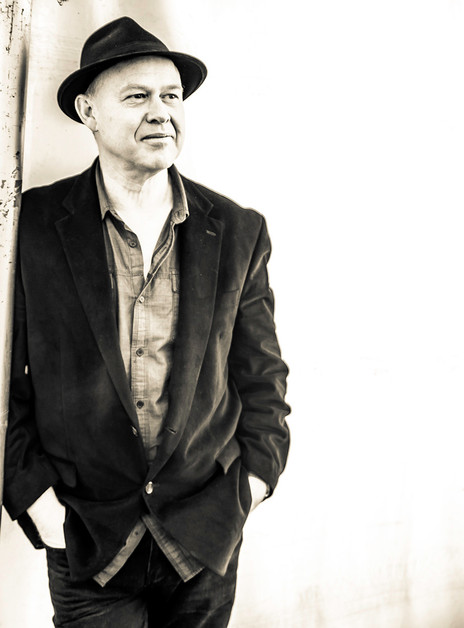Born in Birmingham, England, in 1961, as a baby Armstrong came to New Zealand with his parents. It was a tentative step and within a year the family were back in the UK. After some thought they realised that “home” was not as rosy as they had imagined and they soon returned to New Zealand for good, settling at first in the Taranaki town of Mania before moving to Tokoroa.
“One minute you are living in this strict society and then suddenly you are in cruisy New Zealand,” says Armstrong. “It was such a change, a real opener. I remember being told to take off my shoes for PE on my first day in a New Zealand school. We would never have done such a thing back in England and it was such a shock that I cried.”
His first few years in NZ were defined by the prejudice that faced “Pommy” migrants and he found often found himself the victim of bullying – a situation he often exacerbated because of his “loose mouth”. Music provided the solution.
He was 10 years old when he saw The Beatles film A Hard Day’s Night at a local cinema and, inspired by the music, he decided to learn the guitar. “My parents were not musical; they did not even own a record player. I discovered music by myself and once they realised I was keen they were encouraging.”
With their support he procured an acoustic guitar and took to it like a duck to water.
His first guitar teacher (six string and bass) was Martin Winiata, a saxophone player with a musical career that extended back as far as the 1930s, much of it in Christchurch (his bands included Martin Winiata’s Moon Men, Martin Winiata’s Jazz Band and Martin Winiata’s Dance Band). Resident in Taupo in the 1970s, he became an itinerant music teacher in the district, including Tokoroa. Winiata had turned to guitar because changing musical fashions had seen the popularity of the saxophone decline. He proved to be an excellent teacher, mentor and inspiration for the ambitious young artist.
Armstrong’s mother, appreciating her son’s affinity for music, was determined that he have as full a musical education as she could provide and pushed him to learn piano as well. He had two teachers: one who taught intuitively and the other by theory. He never quite grasped the musical method and through sheer hard work became a “hardcore” ear player.
Now semi-proficient on the guitar and with an arsenal of hit songs at his fingertips (Armstrong had become an avid record buyer and learned the tunes by ear) his fortunes at intermediate school rapidly changed. He was no longer a “Pom” – he was the guy who could play guitar and the bullying ceased.
Tokoroa’s Forest Hill High opened in 1974 and Armstrong was among the first intake. Here he discovered other like-minded kids and started his first band, City Edition. They quickly became a school institution, played all the functions and dances and became popular regulars at local pubs (his mother looked after “the door” and chaperoned). The band folded in 1977 but has since reformed twice to play the schools 25th and 40th anniversary celebrations.
Between City Edition gigs, his musical education was forging ahead with stints in various bands including Emanon, Longshot and Metric; bands helmed by Waikato and Bay of Plenty music luminaries Willie Barrett (a former Gold Guitar winner), Richard Anaru (Howard Morrison), Pete Utinga, and Chris Morrison (now a sound technician whose credits include The Who, Robbie Williams, Pink Floyd, and Motorhead).
From 1981 to 1986 The Politicians were a major draw, pulling large and regular crowds at Hamilton nightclubs.
In late 1977 Armstrong dropped out of school and briefly found work in as an assistant in a car parts shop. His mouth again got in the way and his tenure was brief. This and a stint at Hamilton music store The Listening Post in 1980 were the total sum of his time in the conventional workforce.
Later that year he briefly joined Auckland jazz-fusion outfit Oasis before a stint with Gisborne-based Panic, a major draw on the national pub circuit. Still only 19, these experiences served him well and on returning home to Tokoroa he knew without a doubt that “on the road and making music” was where he wanted to be.
Armstrong had long been writing and recording his own songs and wanted a band that would help him fulfil his ambitions as well as make a little money. He contacted some friends and the result was The Politicians. From 1981 to 1986 The Politicians were a major draw, pulling large and regular crowds at Hamilton nightclubs Zaks, The Lady Hamilton and Governors Tavern. Between gigs the band recorded and released two singles, ‘Baghdad’ b/w ‘Looking For You’ (1983) and ‘Energy’ b/w ‘Polar Bear’ (1985) which led to appearances on TV shows Shazam! and Radio With Pictures.
In 1986 he went solo with the Tim Armstrong Band and released the singles ‘Photograph’ b/w ‘Hope’, and ‘Christmas Day’ b/w ‘Feel Like a Child’. After a successful residency at Hamilton club Roxoff the band renamed themselves The Kiwi Bandits and headed off overseas in search of opportunity. In 1988 they took up a three-year residency at the Forge Nightclub in Papakura, followed by a six-month stint on the cruise ship Fairstar. This is the extent of his career beyond the borders of the Waikato.
After the release of his first solo album Relationships (1991– recorded and produced by Zed Brookes at Tandys) he teamed up with Alastair Riddell and Paul Dunningham (Mi-Sex) and put together a Bowie tribute band, taking on keyboard duties.
In 1992, in response to the murder of English tourist Margery Hopegood – who was stabbed to death in a public toilet on Grantham Street in Hamilton – he recorded and released one of his most defining songs: ‘Grantham Street’. This was once more recorded by Zed Brookes at Tandy’s with Knightshade’s Rik Bernards on guitar. A major local hit, it preceded his 1993 solo album Breaking Hearts.
After winning the Top Male Vocalist gong at the 1993 Waikato Rock Awards he started the NZ Beatles: a successful tribute band that is still going strong today. In 2014 he built on the theme, forming a Wings tribute band with former Wings saxophonist Howie Casey. In August 2016 with Casey and two other former members of Wings, guitarist Laurence Juber and drummer Steve Holley, the NZ Beatles performed at Liverpool's Royal Court theatre during Beatles week.
In the early 1990s Armstrong entered into a productive relationship with Hamilton’s Hark Records. The Wondering Why album was recorded at the label’s Zoo facility by Zed Brookes and released in 1995. Two singles followed: ‘Here Comes The Sun’ (a Beatles cover) and ‘Separate Lives’, a duet with Hamilton singer and Hark recording artist Jacqui Keelan Davey.
In the years since, Armstrong has recorded and released 19 albums at his home studio and has maintained a hectic live schedule, playing up to four nights a week, year in, year out, sometimes with a band and often as a solo performer – all the while maintaining two distinct careers as a covers artist and a singer-songwriter.
After many years living in Hamilton and later Morrinsville, Armstrong now lives in Thames. He is a mentor to many young musicians and, like fellow Waikato legend Paul Martin, is often accompanied on drums by his son.
